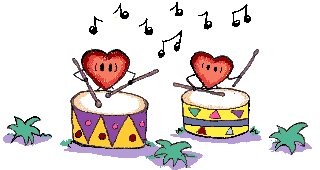

Having struggled with where I should place this article within my web site (under what heading does it belong ??), I decided to place it here. The substance includes that which has consistently guided me in my evolution as a drummer and more importantly, probably has become what I believe to be the entire backbone upon which I would place my style of playing.
Throughout my career, I have been approached many times by students and those who think I might have something to contribute, to consider writing a drum method book. For whatever reason, be it lack of time or inspiration, I have continued to procrastinate throughout the years and never really took the suggestion seriously. The problem is, as I see it, the drum world seems to be overwhelmed with method books, many of which seem to be redundant and somewhat boring. This is not to say that most books are useless. There is, without a doubt, many great books on the market, many of which are extremely useful but many too that approach teaching the drums in very much the same way as the next...by publishing a multitude of repetitive exercises and rhythms while instructing the student to repeat each exercise slowly... gradually increasing the tempo as he/she, the student, feels comfortable. Many books now include CD's that augment the exercises and help the student to better understand the instructional concept. I guess what I'm trying to say is that given the amount of books on the market, coming up with something creative would seem to be an almost impossible task.
This abundance of material, much of which uses a very similar instructional approach, has inspired me to dig deeply into what I think is the soul of playing the drums and has forced me to go deep inside to understand what propels me to make music. As I think back, both as a student and now as an experienced musician, the one element that continues to move and inspire me to play music is not the abundance of notes or technical proficiency...but it is what I consider to be the bare bones of all forms of communication...the emotion...the expression...or more simply put, the "FEEL".
In contemplating a method to use in teaching "FEEL" I believe we initially have to search back into our past. I believe that "FEEL" is something that one cannot know unless we analyze from where we have come...our ROOTS, so to speak. Each of us, as individuals, have come from different backgrounds and experiences. Those experiences allow us to express ourselves in ways that are individually unique...we communicate in ways which are unique to ourselves. When we speak on the phone, our voice is immediately recognized by the person on the other end. It's not only the sound of our voice but the method in which we pronounce our words, our verbal phrasing, that allows one to be immediately recognizable. As in verbal communication, we musicians express ourselves uniquely, however through our musical instrument rather than our voice. We musicians who have honed our craft to a certain level (technical proficiency) have acquired the ability to express ourselves on as high, or perhaps even a higher level then one could through verbal communication.
Music is a highly sophisticated form of expression, perhaps even rising above that of verbal communication. Imagine watching a movie without music. The verbal script alone, as dramatic as it may seem, many times falls short in attempting to effect our emotions. It is not until the music is introduced that we feel our emotions being moved. It is the "FEEL" of the music that drives us emotionally in one direction or another...be it SAD, HAPPY, DISGUSTED, MAD, FRUSTRATED, OVERWHELMED etc. Along with the emotional content of the musical composition, it is the contribution of the entire musical ensemble and combination of a multitude of unique emotional interpretations (the musicians) that communicate the entire expressive content of the composition. It is a combination of numerous backgrounds and experiences (the musicians) that inevitably moves us in one direction or another. This is the "FEEL", expressed individually through each ensemble member (contributing musician) that ultimately assists the music in becoming a highly expressive form of communication.
As individual musicians, we draw upon numerous elements in expressing our emotions through performance. Dynamics, tempo, phrasing, rhythm etc., all in combination, make up what we call our individual sound. It is the way which we approach these elements that allows us to eventually arrive at our own unique "FEEL". It is this "FEEL" along with our own individual sound that makes us easily recognizable by the educated listener. One's musical "FEEL" is very much an integral part of one's musical identity/personality. As in our personal lives, our musical lives are driven by past experiences. One's musical identity is much the same as one's personal identity in that both are driven by the same unique experiences.
As I think deeper into the many styles of individual musicians, a vast community of personalities and experiences, I consider myself quite lucky to have achieved, however slightly, my own identity as a player. As I think back, arriving at this goal has been a long and difficult road. As I think forward to the future, what seems to be my next goal could quite possibly be my most frightening yet...that is to write a drum method book based on helping drummers to achieve what they will eventually call their own musical identity...their musical soul...their sound...their "FEEL".............."HELP"!
To "The Hang"
Back To The "Real Diddy"
Before you leave, please sign my "Guestbook"